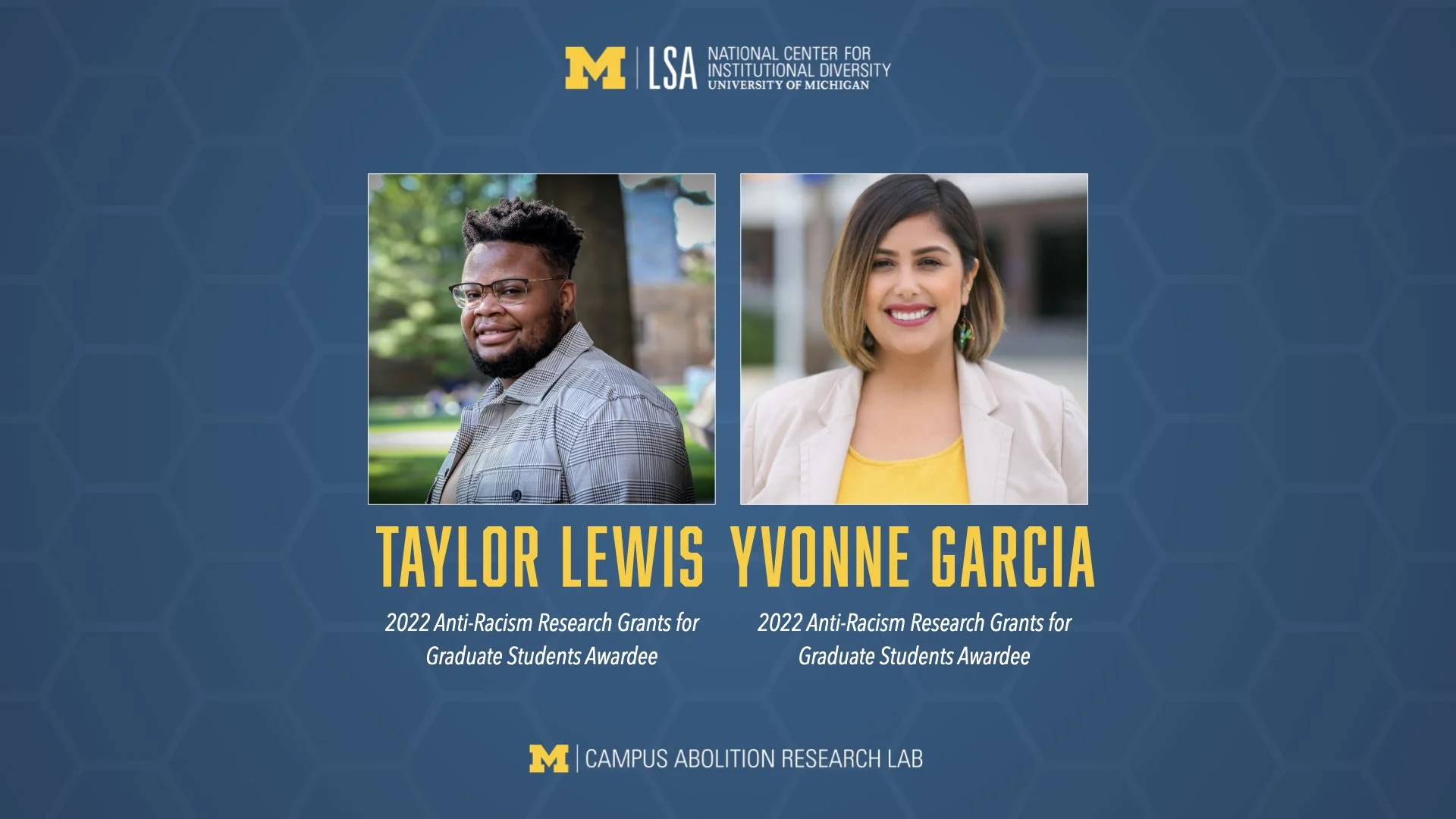CARL Associates Receive Anti-Racism Grants
CARL Research Associates Taylor Lewis and Yvonne Garcia were awarded Anti-Racism Research Grants from the National Center for Institutional Diversity Anti-Racism Collaborative. The grants “aim to support engagement in research projects focused on racism, racial equity, and racial justice while advancing graduate and professional student progress toward degree.” Taylor Lewis’ project will focus on queer and trans students’ experiences resisting racial battle fatigue. Yvonne Garcia’s project will examine racialized knowledge systems and epistemic resistance in graduate education.
Towards a “Quare” Battle Fatigue: Queer and Trans Students of Color’s Experiences of and Resistance to Queer & Racial Battle Fatigue
Taylor Lewis, CARL Research Associate
Higher education scholarship has failed to recognize QTSOC and how they negotiate their environment with various subordinate identities (Nicolazzo, 2016). In this research project, I introduce “Quare'' Battle Fatigue to examine the psycho-social and physiological effects of navigating higher education institutions deeply embedded in multiple and various forms of oppression. This research project illuminates the margins, seeking to identify the health, wellness, and safety resources QTSOC need to not just survive, but thrive. This project will also examine how QTSOC disrupt practices of education violence with practices of Queer/Trans life-making to spark joy and create a sense of home.
An Anti-Colonial Phenomenology of Racialized Knowledge Systems, Epistemic Injustice, and Epistemic Resistance in Graduate Education
Yvonne Garcia, CARL Research Associate
This research creates a counter epistemic community for 4-6 graduate students from racially minoritized backgrounds who are resisting white dominant knowledge systems in their own research. We will co-create a convening to understand graduate student socialization experiences into white knowledge systems, how this effects their scholarship, scholarly identities, and sense of belonging. Using PAR, pláticas, and autoethnographic/ethnographic methods the preparation of and the convening serves as a site for my dissertation data. This research practically and theoretically can help reimagine graduate education as an epistemically just spaces that honors the multiplicity of knowledges of racially minoritized graduate students.
+Learn more about NCID’s Anti-Racism Research Grants program

